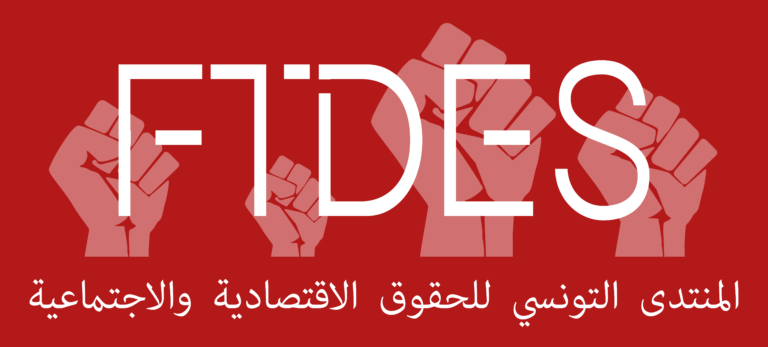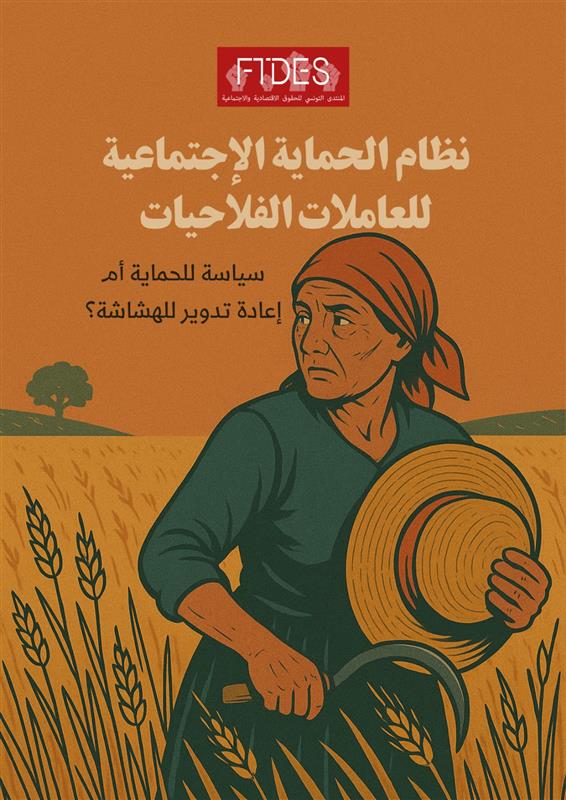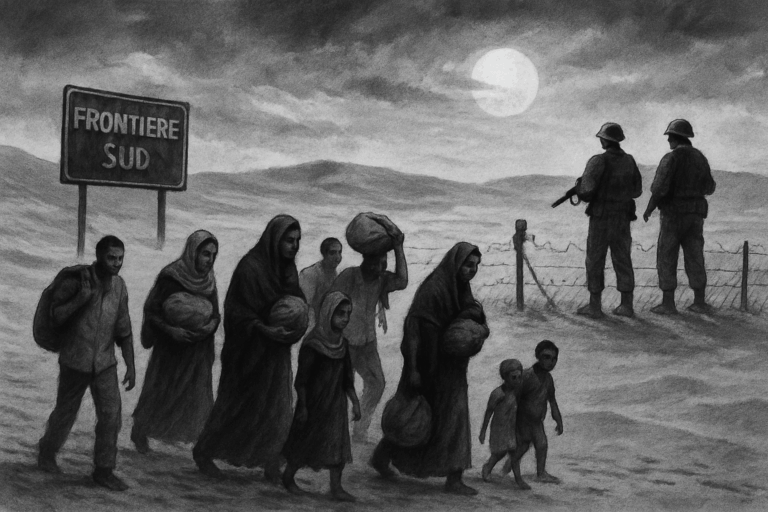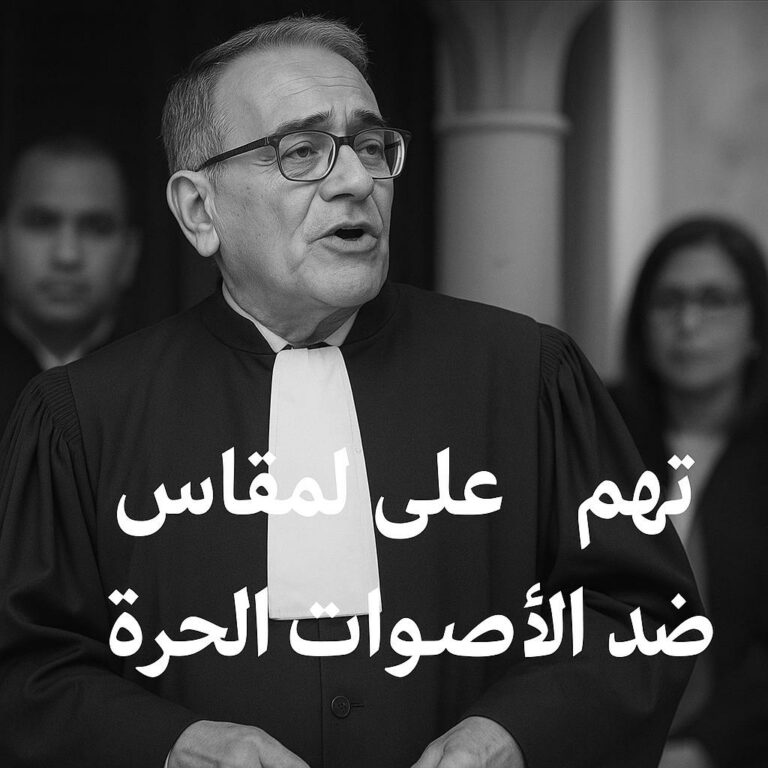Statement of the preparatory session of the Conference on Rights and Freedoms and for a Just Democratic Republic
Today, Saturday, May 31, 2025, we conclude the preparatory session for the National Conference on Rights and Freedoms and for a Just Democratic Republic, with the participation of representatives of many associations, parties, youth activists and independent activists.
The initiative has gained positive resonance, as it has stirred up stagnant waters and provided many actors with a possible horizon for a more effective civil and political action that breaks with the state of disorientation and fragmentation and undertakes the task of defending rights, freedoms and democracy with the clarity, radicalism and aggregation that it requires.
The initiative came in the context of the authorities’ escalation of their totalitarian and repressive approach, as evidenced by the unjust verdicts in the “conspiracy” case, followed by the arrest and imprisonment of lawyer and former judge Ahmed Souab, joining the endless list of victims of the criminalization of political, civil, journalistic and trade union work. By relying on repressive police practices and using its control over the courts, which are subject to the arbitrary imposition of exemptions and work warrants, the monopoly of power and the change of power paved the way for the criminalization of political, civil, journalistic, and trade union work. The monopolization of power and the unilateral change of the system of government have gradually eradicated the gains of freedom that the people gained through their revolution and the blood of their martyrs, and returned to a climate of silence, fear, and intimidation, both within state institutions and against intermediary bodies, the media, those involved in public affairs, and all citizens, turning Tunisia into a large prison.
Experience has proven the lie that monopolizing power is effective in achieving economic and social results. The regime confronts the deep economic and social crisis under which Tunisians are living by selling illusions and propaganda, and by adopting a conspiracy theory as the only way to explain all the crises. By hiding behind a conspiracy narrative and inventing “internal enemies” to justify the absolute irresponsibility of the holder of absolute power, the regime ignores the structural factors in the crises of water scarcity, high prices, and the deterioration of public services as a result of austerity policies. It also hid behind a hateful racist narrative to cover up its role as a guardian of European borders in exchange for political recognition of the regime and paltry sums of money, leaving thousands of Tunisian migrants in Europe and sub-Saharan migrants in Tunisia and their supporters to pay the price for the state’s submission to the policies of the neo-fascist government in Italy.
The return of social protests, whether by sectors, organizations, or individuals, is a clear indication of the falsity of the regime’s propaganda and slogans, and of the growing social anger. As usual, the authorities respond to protests with repression and punishment, such as in Mazouna and Zarzis or against youth protesting for the right to a healthy environment in Gabes, and they use their arms to hack and abort any social movement, as in the case of women working in the agricultural sector. The social movements have exposed the authority’s inability to find realistic solutions and revealed that its investment in hatred and grievances and the marketing of superficial measures will not extinguish popular demands for a dignified life.
The escalation and expansion of repression is a sign of weakness and terror in the regime’s ranks. Its ability to systematically destroy the gains of the revolution cannot cover its lack of sustainability, its total dependence on the person of the president, and its inability to build a coherent structure and even to enforce the provisions of its own unilateral constitution. While we reiterate that the autocratic system is irreparable, its isolation and refusal to engage in dialogue and recognize the crisis only increases its danger and fragility. On the other hand, there is a growing conviction within broad sectors of society that the collapse must end, the people must regain their democratic decision-making, and the gains of their revolution must be restored.
The common ground we share in defense of human rights in their universality and comprehensiveness, social justice, and adherence to the revolution of freedom and dignity and its gains requires us to take a principled and decisive stance that condemns political prosecutions, the process of liquidating political opponents, and arbitrary measures such as restricting the activities of parties and associations, closing headquarters, and preventing meetings. A position that does not differentiate between victims of tyranny and does not confuse political responsibility with criminal responsibility. A position that recognizes the right of all to political and civil action and believes in a democracy based on political rivalry between diverse senses and not on antagonism and cancellation. While we believe in the need to draw all lessons from the failure of the democratic experience to fulfill its promises, this does not in any way justify the acceptance of an authoritarian regime or the postponement of the demand to build a democratic republic. There is no way to separate the daily human rights and social struggles from the demand to resume the democratic process, overthrow the rule of the individual, and build a state of law and truth. It is politically meaningless to demand freedoms while accepting a political system based on the rule of the individual. The human rights and political task today is to think of a roadmap for a return to a democratic republic that courageously raises the question of constitutional legitimacy and the political system, and translates a principled position on the nature of the existing authoritarian system and the impossibility of reforming it
The experience of the post-July 25, 2021 activism has shown the urgent need for methods of struggle that unite ranks and overcome the existing stalemate, based on clear contents and alternatives. This requires the establishment of democratic working mechanisms based on discussion and debate, overcoming isolationism, and opening up to the various militant energies within society. Therefore, at the conclusion of this session, we declare the beginning of a new phase of activism, through a dynamic of collective thinking and mobilization capable of confronting tyranny, building bridges with tributaries of social resistance, and changing the balance of power in favor of the will for democratic change. Our only path is a peaceful and civil struggle, without separating between human rights and social demands and political change for a democratic system that guarantees human dignity and expresses pluralism within society.




